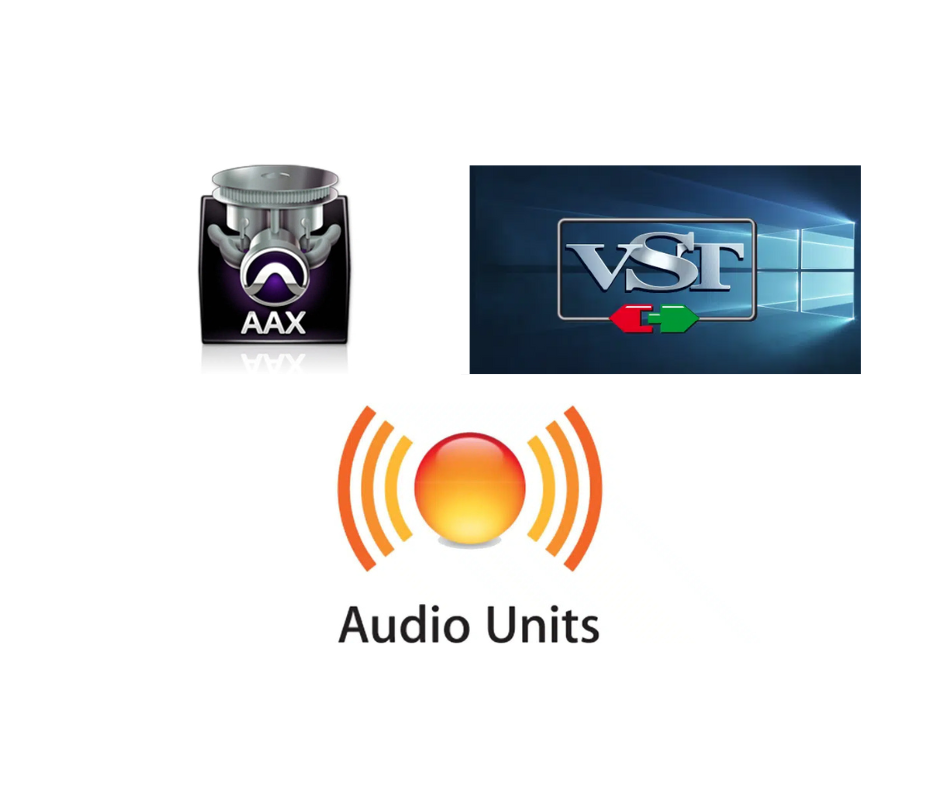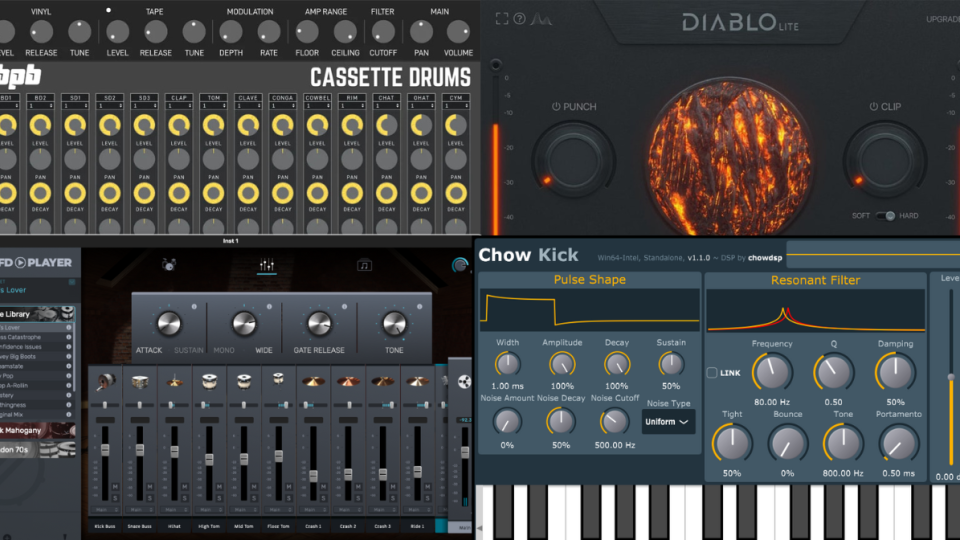What are audio plugins?
Audio plugins are software tools that can extend the functionality and creative possibilities of Digital Audio Workstations (DAWs) by adding virtual instruments, effects, and utilities that are not natively built in. They process or generate sound, allowing musicians and producers to shape and enhance their music with various effects such as reverb, delay, or compression. They also come in the form of instruments such as synthesizers or samplers. Plugins are essential in music production, sound design, and post-production. If you’re creating professional audio productions, they’re something you’ll want to add to your setup.
Audio Plugin Formats

- VST (Virtual Studio Technology): The VST plugin format, created by Steinberg, is the most flexible and widely used audio plugin format for integration with most DAWs. Their versatility makes them a go-to for various tasks, from synths and samplers to EQs and compressors. VST plugins work across multiple platforms and are compatible with most Windows and macOS-based DAWs, offering a huge amount of creative options for music production and sound design.
- AU (Audio Units): AU plugins developed by Apple are exclusive to macOS and iOS environments. Similrar to VSTs, they provide virtual instruments and effects within Apple’s Logic Pro, GarageBand, and other compatible software. As they’re limited to Apple’s ecosystem, AU plugins deliver tight integration with the operating system and hardware, leading to efficient performance and reduced latency. Definitely a preferred option for Apple users who require seamless operation in music production.
- AAX (Avid Audio eXtension): AAX plugins are designed for Avid’s Pro Tools DAW, widely used in industry standard professional audio production environments AAX supports both 32-bit and 64-bit processing, allowing for higher precision and more complex audio effects. AAX offers seamless integration with Pro Tools, making use of its powerful DSP (digital signal processing) capabilities.
Categories of Audio Plugins
- Effects Plugins: Examples include; reverb, delay, distortion, compression among others. These plugins alter the audio by adding various effects, such as creating space, adding warmth, or altering dynamics.
- Instrument Plugins: Examples include: synthesizers & samplers. Instrument plugins generate or playback sounds that have the ability to mimic real instruments or create entirely new sounds, helping musicians and producers create music without physical instruments.
- Utility Plugins: Examples include: EQs, spectrum analysers. Utility plugins assist in mastering and mixing by providing visual feedback and control over frequency balance and audio levels.
Why Are Audio Plugins Important?
Audio plugins give producers and musicians more tools that enhance sound quality, add unique effects, and enable new sound design possibilities. Plugins streamline workflow by allowing instant access to a variety of virtual instruments and effects directly in the DAW. Their flexibility gives users the ability to experiment, modify, and fine-tune sounds without the need for expensive hardware, making them indispensable for both amateur and professional creators.
Free vs. Paid Plugins
Plugins are vital in shaping the sound of our mixes and productions. But with loads of options available, how do you decide which ones are the right tool? You could decide to spend a small fortune on premium plugins, or you could opt for countless free alternatives that do a similar job.
We dig into the debate between free and paid plugins, and shed some light on when it makes sense to opt for premium tools and when free plugins might be sufficient in our blog post “Free vs. Paid Plugins: Are Premium Audio Plugins Worth the Price?“
Choosing the Right Plugin
- Consider Genre: Different genres will require specific sounds and effects, so research popular pluigns for your preferred genre. For example, and electronic dance record will likely make use of synths, a rock track might need some guitar effects or amp sims.
- Free vs. Paid: Will a free plugin offering do what you need it to without the added premium features of a paid plugin. Only you know!
- System Compatibility: Are the plugins you’re interested in compatible with your DAW and operating system? Check whether they support VST, AU, or AAX formats and whether they require specific system specifications.
Remember – RouteNote Create subscriptions start from as little as $2.99. You also get 10 FREE credits to spend on samples along with access to our FREE sample pack bundle when you sign-up!
